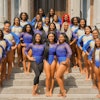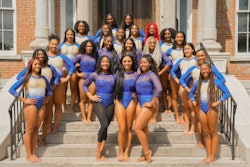NEW YORK
Rarely has an author succeeded, then failed, as quickly as Kaavya Viswanathan, the Harvard University sophomore who acknowledged lifting material for her debut novel, How Opal Mehta Got Kissed, Got Wild and Got a Life.
Just weeks after her book was released with a first printing of 100,000 copies and a wave of favorable attention, publisher Little, Brown and Company announced Thursday that it would be pulled from store shelves and that retailers had been asked to return unsold copies.
Viswanathan, 19, has apologized repeatedly to author Megan McCafferty, saying she had read McCafferty’s books voraciously in high school and unintentionally mimicked them.
But McCafferty’s publisher, the Crown Publishing Group, believed Viswanathan guilty of “literary identity theft” and urged Little, Brown, which initially said her novel would remain on sale, to withdraw the book.
In a statement issued soon after Little, Brown’s announcement, Crown said it was “pleased that this matter has been resolved in an appropriate and timely fashion” and praised McCafferty for “her grace under pressure throughout this ordeal.”
McCafferty, in a statement released by Crown, said she was “not seeking restitution in any form” and hoped to put the affair behind her.
“The past few weeks have been very difficult, and I am most grateful to my readers for offering continual support,” she said. “In my career, I am, first and foremost, a writer. So I look forward to getting back to work and moving on, and hope Ms. Viswanathan can too.”
How Opal Mehta Got Kissed, Got Wild and Got a Life was released in March, sold moderately and was No. 96 on the Amazon.com best seller list Thursday night. Viswanathan was signed to a reported six-figure deal and DreamWorks has acquired film rights to the novel.
Similarities to McCafferty’s books, which include Sloppy Firsts and Second Helpings, were first spotted by readers. They alerted McCafferty, who then notified her publisher. Crown alleges that at least 40 passages “contain identical language and/or common scene or dialogue structure.”
Little, Brown has said the book will be revised as quickly as possible, but in its statement made no reference to a new edition. In its statement, Little, Brown did not say how many passages would be changed.
Viswanathan’s misdeeds could be blamed on inexperience, or her involvement with a book packager, 17th Street Productions, which helped her shape the story.
But plagiarism is not only for the very young. Doris Kearns Goodwin was in her 30s when she was working on The Fitzgeralds and the Kennedys and took large blocks of text from author Lynne McTaggart. Stephen Ambrose was past 60 when caught stealing for The Wild Blue.
And Viswanathan’s fall is not necessarily fatal.
In 1980, debut author Jacob Epstein acknowledged plagiarizing Martin Amis’ The Rachel Papers for his novel Wild Oats. Epstein moved on to Hollywood and eventual forgiveness, his writing credits including “Hill Street Blues” and “L.A. Law.”
— Associated Press
© Copyright 2005 by DiverseEducation.com



















